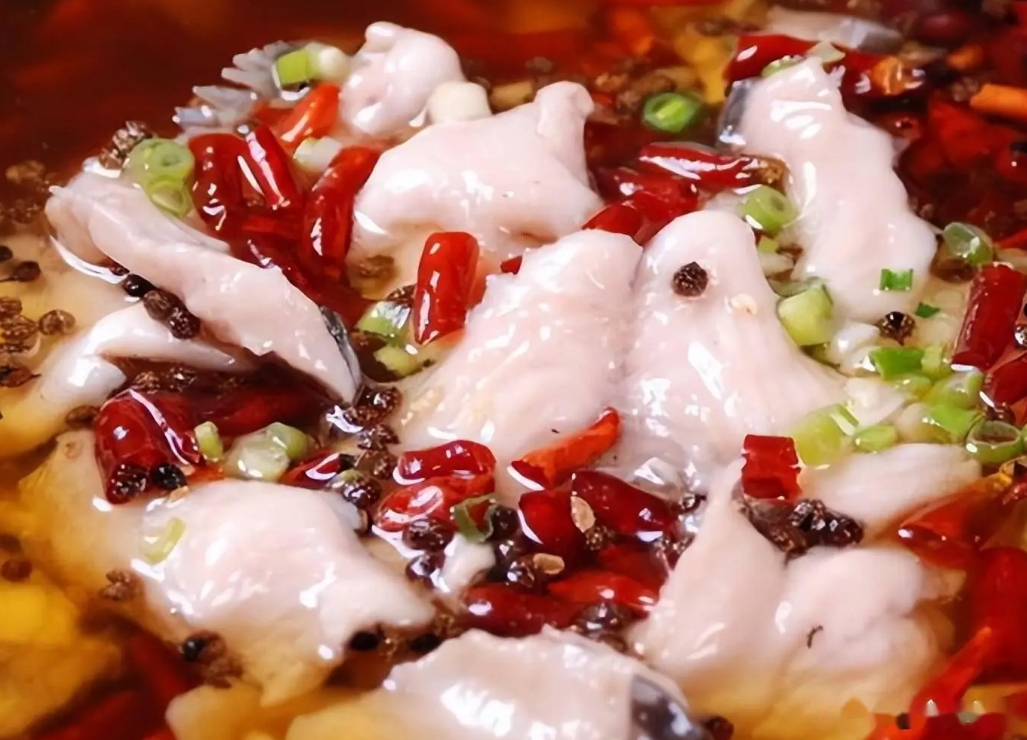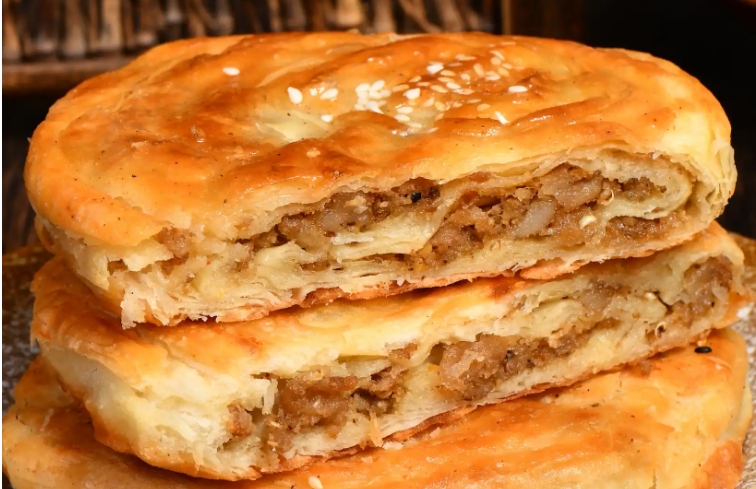SHARK'S FIN
AND
SICHUAN PEPPER
FUCHSIA DUNLOP
文内配图并非全部与正文内容相符,部分图片的加入是为了读文时更有浪漫氛围。
文章长句、大段较多,部分段落篇幅分配长短不一,见谅。
CHAPTER 1
Mouths That Love Eating
 Crawling out of bed on a damp October morning, in my small shared room in the Foreign Students’ Building of Sichuan University. My Italian roommate, Filomena, is already up and out. Sleepily, I pull on a padded jacket and look out of the window. As usual, the sky is a muffled grey (‘Sichuanese dogs bark’ – in surprise – ‘at the sun’, goes the old saying). Over the wall that is supposed to keep foreign students in and curious Chinese people out, I can see a row of wutong trees and, beyond them, the Brocade River, where a cormorant fisherman is trying his luck in the murky water. His birds, their great black wings flapping, have rings around their necks. When they catch a fish too big to slide down their constricted throats, they offer it to the fisherman, who drops it into his basket, and gives them a smaller fish in exchange. I watch, captivated by yet another of the endlessly fascinating little events that mark my daily life in Chengdu.
Crawling out of bed on a damp October morning, in my small shared room in the Foreign Students’ Building of Sichuan University. My Italian roommate, Filomena, is already up and out. Sleepily, I pull on a padded jacket and look out of the window. As usual, the sky is a muffled grey (‘Sichuanese dogs bark’ – in surprise – ‘at the sun’, goes the old saying). Over the wall that is supposed to keep foreign students in and curious Chinese people out, I can see a row of wutong trees and, beyond them, the Brocade River, where a cormorant fisherman is trying his luck in the murky water. His birds, their great black wings flapping, have rings around their necks. When they catch a fish too big to slide down their constricted throats, they offer it to the fisherman, who drops it into his basket, and gives them a smaller fish in exchange. I watch, captivated by yet another of the endlessly fascinating little events that mark my daily life in Chengdu.
When the cormorant fisherman has drifted past and I can no longer see his birds at work, I shower, dress, and go off in search of breakfast. I say good morning to the elderly watchman at the gate of the Foreign Students’ Building, and wander out past a row of plantain trees. Students and lecturers on bicycles ride past me, ringing their bells. Laundry and birdcages hang on the balconies of the low-rise apartment blocks. Everything is softened slightly by the gentle touch of the Sichuan mist. The campus is a quiet, leafy place, an oasis of tranquillity in a city where the taxis honk their horns incessantly and the street vendors shout and clatter.
Not far away, just behind the university offices, there’s a snack stall, which I can find just by following my nostrils. The heavenly scent of guo kui, twirly flatbreads stuffed with minced pork, spring onion and Sichuan pepper, drifts out across the campus. They are made by an elderly couple who don’t speak much as they go about their business. The woman kneads her dough and rolls it into balls on an oiled wooden board. With the heel of her hand, she smears each ball into a long tongue of pastry which she rubs with lard and a smattering of spicily seasoned pork. Then she rolls it up, flattens it into a round and passes it to her husband. After frying them golden in oil, he tucks the guo kui(锅盔) under the griddle, where they bake crisp at the side of the charcoal brazier. Eaten hot, they are crunchy and chewy and savoury, and the Sichuan pepper makes your lips dance and tingle. Could there be anything more delicious for breakfast on a damp autumn day?

It wasn’t food that originally lured me to go and live in China, or at least that’s what I told myself. I was supposed to be researching Chinese policy on ethnic minorities. A year after my first visit to China in 1992, I had flown to Taipei for a two-month summer course in the Chinese language, and then spent a month travelling around Mainland China and Tibet. On my way home from Lhasa, I called in on the Sichuanese capital, Chengdu, arriving on one of those rare, balmy days when the sun shines brightly, only slightly blurred by the perennial Sichuan haze. With me I had the crumpled namecard of a Sichuanese er hu (Chinese two-stringed violin) player called Zhou Yu, whom I had met on the streets of my hometown, Oxford, spellbinding a crowd with his melodies. ‘Look me up if you ever visit Chengdu,’ he had told me. So I checked into the Traffic Hotel, hired a bicycle, and went off in search of him at the Sichuan Conservatory of Music.
Zhou Yu was as warm and engaging as I had remembered. He and his exuberant wife Tao Ping, another musician, welcomed me as an old friend, and took me on a bicycle tour of the sights of the city. We went for a walk in the grounds of the poet Du Fu’s ‘thatched cottage’, and then they invited me for lunch at a modest restaurant near the bus station. It was a single room on the ground floor of a timber-framed cottage, tiled in white like a bathroom, with a few tables and chairs and nothing to adorn the walls. Zhou Yu ordered some food, and we waited for the dishes to emerge from the tiny kitchen at the back, amid the sounds of furious sizzling. The roo filled up with the most marvellous aromas.
 I can still remember every detail of that delicious meal. The cold chicken tossed in a piquant dressing of soy sauce, chilli oil, and Sichuan pepper; a whole carp, braised in chilli-bean paste laced with ginger, garlic, and spring onions; pig’s kidneys cut into frilly, dainty morsels and stir-fried, fast, with celery and pickled chillies. And so-called ‘fish-fragrant’ eggplant, one of the most scrumptious dishes I’d ever tasted: the golden, buttery fried eggplant cooked in a deep-red, spicy sauce, with no actual fish but seductive hints of sweet and sour. This was Chinese food as I had never known it before. It was a revelation.
I can still remember every detail of that delicious meal. The cold chicken tossed in a piquant dressing of soy sauce, chilli oil, and Sichuan pepper; a whole carp, braised in chilli-bean paste laced with ginger, garlic, and spring onions; pig’s kidneys cut into frilly, dainty morsels and stir-fried, fast, with celery and pickled chillies. And so-called ‘fish-fragrant’ eggplant, one of the most scrumptious dishes I’d ever tasted: the golden, buttery fried eggplant cooked in a deep-red, spicy sauce, with no actual fish but seductive hints of sweet and sour. This was Chinese food as I had never known it before. It was a revelation.
A few months later, a colleague at the BBC suggested I apply for a British Council scholarship to study in China. She helped me devise a worthy plan to investigate Chinese policy on ethnic minorities, a subject that had interested me for some time. Filling in the scholarship form, I came up with various academically convincing reasons for basing my research in Chengdu. I wanted to avoid the expatriate centres of Beijing and Shanghai, so that I had a chance to immerse myself in Chinese life and the Chinese language – never mind that Sichuan dialect is a notoriously distorted version of Mandarin. Then there was Sichuan’s location on the fringes of Han Chinese China, near the borderlands inhabited by Tibetans, Yi, Qiang, and countless other minorities. It all sounded quite plausible. But as I filled in the boxes on the form and composed my personal declaration, I must confess that I was thinking also about sweet and spicy eggplant(鱼香茄子), of a fish lazing in chilli-bean sauce, of frilly pig’s kidneys and Sichuan pepper. Fortunately, the British Council and the Chinese government agreed that Chengdu was a suitable place for me to study, and they gave me my grant, a golden ticket to explore China for a year, with no strings attached.
